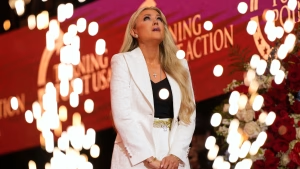Britney Spears: Life After the Conservatorship
December 20, 2021
About a month ago, American singer, Britney Spears was freed from her 13-year-long conservatorship, finally gaining control of her life and career.
A conservatorship is the legal appointment of a guardian over another individual’s actions, economics, and ultimately, their entire lives. In most cases, conservatorships are for individuals who are incapable of controlling their own lives. However, this was not the case for Spears. In 2008, she had a public breakdown and as a result, James Spears, her father, filed for a conservatorship in hopes of controlling his daughter’s life. Since the conservatorship’s passage in 2008, Spears’s fans have become increasingly more concerned over the conservatorship and Spears’s wellbeing. According to the #freebritney movement, which was trending on social media, it was revealed that Spears did not actually need the conservatorship because she was mentally sane, despite her father’s depictions of her. While Spears did suffer from mental health conditions, her father created a stigma that she was mentally insane in hopes of control his daughter fortune, resulting in him making over $16,000 a month as her conservator, in addition to accessing to her earnings, which are estimated to be at least $5 million, according to The New York Times.
About six months ago, Spears testified to the trauma and abuse that she endured under this conservatorship, leading to a court case to free her from her father. She spoke out about being drugged, being unable to have children, and being forced to perform when she didn’t want to, all because of her father’s legal control over her life. Around the same time, Spears said that she would not perform again until her father stepped down as her conservator. In August, he planned to step down and in September, he was suspended from being a conservator. On November 12th, the case went to court and Judge Brenda Penny officially ended the conservatorship.
Since the end of the conservatorship, Spears is finally gaining her life back. On November 16th, she posted a video on Instagram, thanking her fans and the #freebritney movement. In the video, Spears said, “It’s the little things for us women, but it makes a huge difference. And I’m grateful for that.” She plans on doing an interview with Oprah to
 further thank her fans for “saving her life.” Following the court case, Spears went to dinner in Los Angeles with her fiance Sam Asghari to celebrate. The two have been dating for more than four years and plan to marry in the next few months. Spears later shared with her fans that she’s now on the “right medication,” to let others know that she is no longer being drugged and she is taking care of herself. She is now able to live stigma-free and to accurately tend to her mental health conditions. Spears also hints at a surprise for her fans within the next three months. As a result of Spears’s bravery, the court passed the Bipartisan Bill, or the FREE Act, which aims to help free other individuals currently in situations similar to hers.
further thank her fans for “saving her life.” Following the court case, Spears went to dinner in Los Angeles with her fiance Sam Asghari to celebrate. The two have been dating for more than four years and plan to marry in the next few months. Spears later shared with her fans that she’s now on the “right medication,” to let others know that she is no longer being drugged and she is taking care of herself. She is now able to live stigma-free and to accurately tend to her mental health conditions. Spears also hints at a surprise for her fans within the next three months. As a result of Spears’s bravery, the court passed the Bipartisan Bill, or the FREE Act, which aims to help free other individuals currently in situations similar to hers.
Overall, this case has taught many lessons, one being that a story might not be exactly how it seems. Spears’s mental health conditions were publicized due to her breakdown in 2008. As many of us know, the media can spew stories in whichever direction it wants in hopes to gain more traction and make more money. No one knows exactly what occurred with her breakdown, but what we do know is that the media only made the situation worse. Since the breakdown, many people followed her story as she went through rehab. The media, like Spears’s father, has sought to capitalize on the pop icon’s story. Throughout Spears’s entire life, she has been manipulated and taken advantage of since she came to the spotlight at a very young age. As a result, much of her life has been taken from her. Another lesson is that mental health should not be stigmatized. Spears was clearly struggling with her mental health, and being in the public spotlight only made it worse. Spears can now prove to the world that mental health conditions can be resolved by oneself and that people can live with mental health conditions and that they can even make one a stronger person.

















































































































































